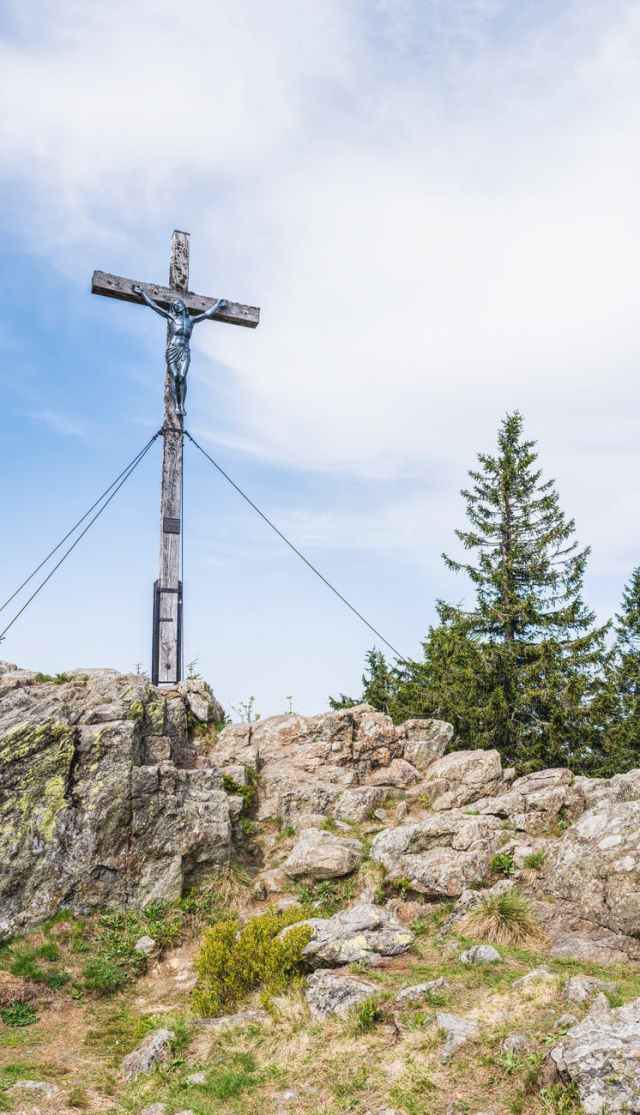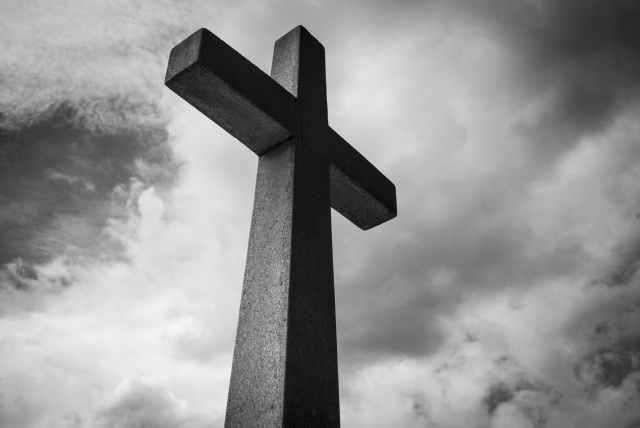Sermon John 3:14-21: Fourth Sunday of Lent, Year B

“Signs, signs, everywhere a sign. Blocking out the scenery, breaking my mind. Do this, don’t do that. Can’t you read the signs?”
These words, the chorus from a popular 1970 song by Five Man Electric Band still ring true today. Signs are everywhere.
SLOW Children Playing. Construction Ahead. Danger–Power Lines. Deer Crossing. Curve Ahead. STOP.
These signs alert us to potential hazards.
Others, the “signs of the times,” make us anxious, fearful, and uncomfortable. Signs alerting us to the dangers that threaten our communities, our nation, and our world.
Fluctuating oil prices. Plummeting wheat prices. Drought. Rumors of a global currency war. Unrest in the Middle East, the Korean peninsula, and the Ukraine. Nuclear proliferation.
Sadly, we tend to ignore the signs we don’t like to see. Signs of poverty and want in our communities. Friends and neighbors standing in line at the local food pantry. The tell-tale signs of abuse and neglect. Signs of addictions to drugs and alcohol.
Signs make us uncomfortable in a “live and let live” world. Worldly values that delude and deceive us into buying into the lie of a me-first ethic that says, ‘do unto to others before they do unto you.” Lies that prey upon our deep-seated feelings of inadequacy. That we are unlovable. That we deserve to suffer. Lies which feed upon our shame, our guilt, and our ever-present sin.
Although the signs of the world do their best to win our allegiance, the signs of the times do not have the last word.
Yet, in many ways, we are like Nicodemus. We, too, see the signs but we don’t understand what is happening. Heck, Nicodemus a religious leader, even sneaks out at night to ask Jesus about the the signs he sees but does not understand. And while Nicodemus acknowledges Jesus as “Rabbi” and as a teacher sent from God, he simply can’t, or won’t, see the signs for what they are. Mystified, he asks: “How can these things be?”
Today’s text from John’s Gospel enters into this conversation between Jesus and Nicodemus. One in which Jesus references a story about the Israelites’ wilderness experiences to predict his own passion and death.
Jesus declares, “And just as Moses lifted up the serpent in the wilderness, so must the Son of Man be lifted up, that whoever believes in him may have eternal life” (JN 3:14).
Although God delivered the chosen people from the hands of the Egyptians, the people complained against both Moses and God. The food was bad. The water was bad. Nothing satisfied them. Sound familiar?
As a result of the people’s disobedience, God sent poisonous serpents that bit and killed the Israelites (Num 21:6). After the people repented God instructed Moses to fashion a snake upon a pole and to lift it up so the people could see it and live. The instrument of death became a sign of God’s power and a promise of life.
In the same way, Jesus invites us to see the cursed tree upon which the Son of Man was “lifted up” for what it is.[1] In the world’s eyes, there is nothing glorious about the cross. The cross is a horrific instrument of torture used to execute traitors, rebels and the worst sort of criminals. There is nothing heroic about it.
It is shameful and embarrassing. The cross is the last place anyone would expect God to show up. Yet, the way things should be, is not the way of God. Just as Jesus overturned the money-changers’ table in the Temple, God’s wisdom confuses and confounds us time and time again.
Faith, notes Martin Luther, sees behind and beyond the brutality and ugliness of the crucifixion. Faith, worked in us by the Holy Spirit, sees the glory “hidden beneath its opposite.”[2] Faith enables us to see the cross for what it is, a sign of God’s love.
Because God loved the world, God sent the Son into the world “so that everyone who believes in him may not perish but have eternal life” (JN 3:16). Jesus became human, lived among us, and died, not to condemn the world, but to save it (JN 3:17).
In what to the world appears to be foolish, the cross,God shows God’s power and wisdom, not in power and might, but in weakness and brokenness. In God’s self-giving love in Jesus. In the One who emptied himself on the cross for you, for me, for the whole world. Jesus, the Messiah, who was unfairly tried, flogged, mocked, abandoned by those closest to him in his time of need, and crucified on a cursed tree of shame. For you. For me. For the whole world.
The Son of Man who was lifted up on the cross comes to you now, right here, right now. In this worship assembly – “a being saved community.”
The One lifted up on the cross comes to you now at the table where you receive the body of Christ given for you and the blood of Christ shed for you, for the forgiveness of your sins. Above all sin is “lifted up” the forgiving love of the crucified and risen One.[3]
Our Lenten journeys began on Ash Wednesday with the sign of the cross and the words, “Remember that you are dust, and to dust you shall return.”[4]
As we continue our wilderness journey to Golgotha, Let keep our gaze firmly focused on the cross, remembering: It is our sin that Jesus bears on a tree of shame. It is we who are crucified with him. For in Christ our sin, brokenness, and alienation has been, is being, and shall be overcome.[5]
In the cross, is God’s wisdom and power. The power over sin. The power to defeat death. The power of God’s salvation. God’s infinite love for you, for me, for the world!
“Behold the life-giving cross, on which was hung the Savior of the whole world.”[6]
Citations
[1] John 8:28 notes: “When you have lifted up the Son of Man, then you will realize that I am he.”
[2] Martin Luther cited in Douglas John Hall, The Cross in Our Context, 92-93.
[3] Dietrich Bonhoeffer, The Cost of Discipleship (1963), 17, 24-25.
[4] ELW, 254.
[5] The Cross in Our Context, 96.
[6] ELW, 264; Gail Ramshaw, Treasures Old and New, 122.













